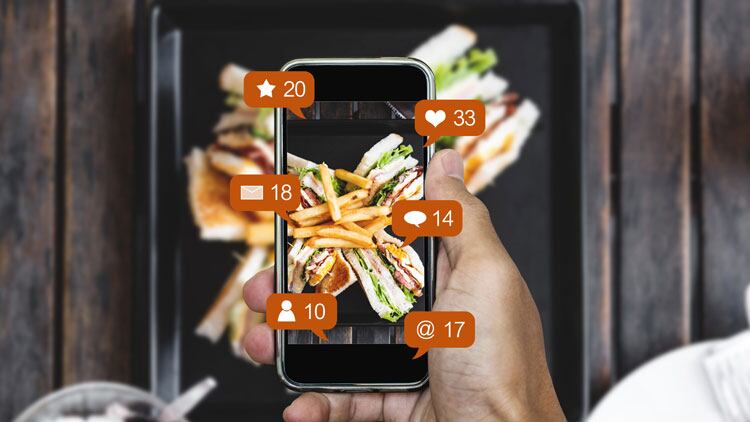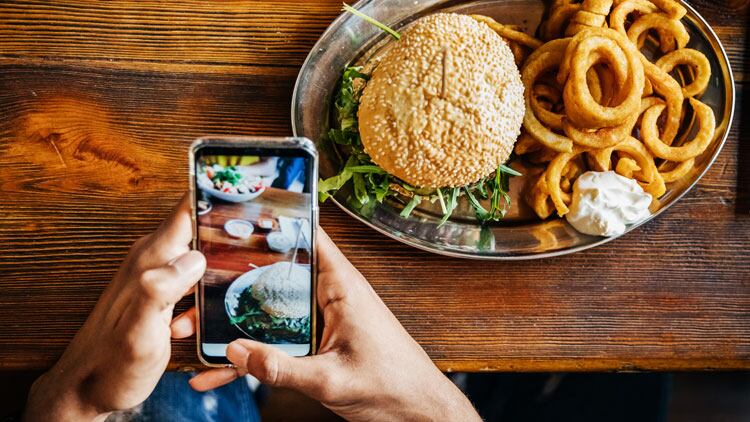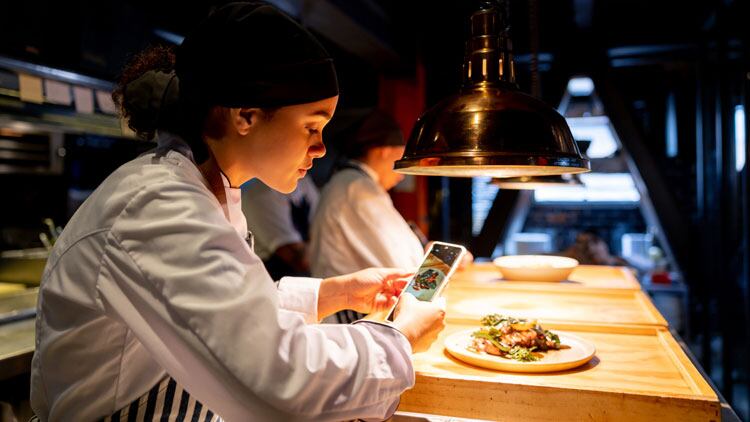People often ask me how important social media is when you’re building a restaurant brand. And the answer is simple – it’s extremely important, because it’s a voice. When people think of their brand they often just think of a logo, but it’s actually a whole persona. If you’re a restaurateur, then you’re trying to create a relationship between your restaurant and the diners you want to attract.
Understand what your persona is: how you sound, the target audience, your interests, etc. Think of your business as a person and use social media to get in front of similar people – to start a conversation and get them to a point where they know what your restaurant is about before they’ve walked through the door. Here are five tips to help you get there.
Create a strategy
It’s important to have a defined strategy in place when building your brand on social media. At Fat Hippo, we have a pre-planned social calendar that spans forward six months, and we produce content six weeks ahead of it running. Much of the content we produce is video. In the age of TikTok and Instagram Reels, video is key, but you need to bear in mind the attention span of your scroller. A year or so ago you had around 30 seconds to get your point across, but now it’s more like six seconds. The full length of your video isn’t hugely important, it’s about making sure your message is out within that initial six seconds. If it’s engaging enough people will watch it all the way through. When it comes to choosing when to post your content, the time of day isn’t as important as the day itself, although as a rule of thumb it’s best to go earlier rather than later. We often find the best days for engagement are midweek. Thursday, in particular, is a good day, especially if we’re launching a new menu item or special dish, as that’s often the day that people are making their plans for the weekend. Keep in mind when developing your strategy that people will want to engage with you directly once you’ve posted. At Fat Hippo we have a strategy in place called ‘reactivity’ which means that every day someone is monitoring our social pages until 11pm and responding within half an hour of a comment. Doing this allows us to build a better dialogue both with current and future customers.

Embrace multiple platforms
Lots of people assume it’s best to focus on one social media platform, but that’s not the case. I always follow the rule of seven - to get to a point of converting a potential customer into a guest, they need to have seen a piece of content from your brand seven times. You can’t do that if you only have a presence on one social media platform. If your customers are excited by what they’ve tried, they’ll take pictures and create user generated content for you (more on that below). The power of the devices we carry now means the majority of people are taking high quality content, so you need a presence on these platforms in order to share it. It brings a sense of truth to what your brand’s all about. There isn’t a preferred channel to use, but there’s definitely a different tone to each of them. Your audience might differ between Instagram, Facebook and TikTok, so the point of conversion between each of those platforms will be different. Take the time to understand each platform but remember that they all have an element of importance.
The phone is king
Everything Fat Hippo puts out on social media that’s shot by us is created using a smartphone. It pains me to say as I ran a marketing agency for seven years and we had an in-house video marketing team, but that approach doesn’t seem to work now because of the algorithms used by social media platforms. They want to see that you’ve created the content on a mobile device and edited in-app, and doing so, means your engagement will likely be higher as you won’t be punished by their algorithms.

Make the most of user generated content
We use a lot of user generated content at Fat Hippo. Whether it’s from influencers we’ve invited, or guests that have come in and taken a good picture or video, it’s about sharing that content and making other people part of that experience. If you’ve created a persona where you’re engaging with people who tag you and replying to comments from users, you almost build up a friendship, which means your customers will be happy for you to share their content. It’s not just about wider engagement; user generated content can also benefit your business operationally by highlighting something on-site that’s not built to your spec.
Influencers – yay or nay?
This is one of the questions I get asked about the most. I’m happy to work with influencers, but not those who charge big money. If you’re paying an influencer, it’s hard to know how much you need to put back in the till before it’s a cost-effective investment. A lot of businesses will see a huge follower number, say one million, and think that’s enough to generate more revenue, but you have to think about how many are actually likely to see the content, and then walk into your restaurant as a result. It’s often quite slim. We tend to target more local, diverse micro influencers and invite one or two in a month into our restaurants and gift them a free meal. Often the goal is to just get really good content. They may only have 5,000-odd followers, but if the content they’re producing is excellent, then we can repurpose and reuse it, which again helps boost our own content creation.
Nick Fountain spoke as part of Restaurant's Generation Next event, which was held in Manchester on 20 March


